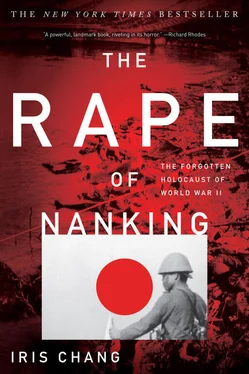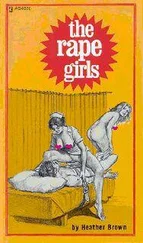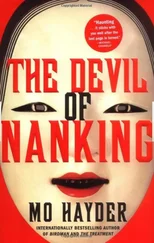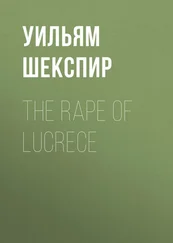209. “How long must we apologize”: The military historian Noboru Kojima, quoted in New York Times, November 3, 1991.
209. “hitting the lottery”: Quoted in Sonni Efron, “Defender of Japan’s War Past,” Los Angeles Times, May 9, 1997.
209. Ono Kenji, a factory worker: Charles Smith, “One Man’s Crusade: Kenji Ono Lifts the Veil on the Nanking Massacre,” Far Eastern Economic Review, August 25, 1994.
210. In 1996, he coedited : Ono Kenji, Fujiwara Akira, and Honda Katsuichi, ed., Nankin Daigyakusatsu o kirokushita Kogun heishi-tachi: daijusan Shidan Yamda Shitai heishi no jinchu nikki. [Soldiers of the Imperial Army Who Recorded the Nanking Massacre: Battlefield Journals of Soldiers from the 13th Division Yamada Detachment] (Tokyo: Otsuki Shoten, 1996).
210. “Not only did the Japanese distributor”: Yates, “ ‘Emperor’ Film Keeps Atrocity Scenes in Japan.”
210. “confusion and misunderstanding”: Ibid.
211. Suzuki charged that some of Honda’s and Hora’s stories: Most of the information on the debate between the illusion and massacre factions, the Kaikosha survey, and the tampering with Matsui’s diary comes from Yang Daqing, “A Sino-Japanese Controversy: The Nanjing Atrocity as History,” Sino-Japanese Studies 3, no. 1 (November 1990).
212. “enemy propaganda”: Quoted in Buruma, The Wages of Guilt, p. 119.
212. “not only on the Japanese officers”: Ibid., pp. 121–22.
213. “no less than tens of thousands”: Yang Daqing, “A Sino-Japanese Controversy: The Nanjing Atrocity as History,” Sino-Japanese Studies vol. 3, no. 1 (November 1990): 23.
213. “there was no excuse”: Ibid.
213. What happened to Azuma Shiro: Catherine Rosair, “For One Veteran, Emperor Visit Should Be Atonement,” Reuters, October 15, 1992.
213. The troubles for Motoshima Hitoshi: Buruma, The Wages of Guilt, pp. 249–50.
215. “Loot all, kill all, burn all”: Rummel, China’s Bloody Century, p. 139.
215. “I have received orders”: Quoted in Wilson, When Tigers Fight, p. 61.
216. At least one author on China: Jules Archer, Mao Tse-tung (New York: Hawthorne, 1972), p. 95.
216. R. J. Rummel, author of China’s Bloody Century , points out: Rummel, China’s Bloody Century, p. 139.
216. In areas that may have served as landing zones: Ibid., p. 138.
216. We now know that Japanese aviators sprayed fleas: Ibid., pp. 140–41.
216. The final death count was almost incredible: Ibid., pp. 149, 150, 164.
217. “the transfer of oppression”: George Hicks, The Comfort Women (New York: Norton, 1994), p. 43.
217. Japanese soldiers were forced to wash the underwear of officers: Nicholas Kristof, “A Japanese Generation Haunted by Its Past,” New York Times, January 22, 1997.
217. “act of love”: Tanaka Yuki, Hidden Horrors, p. 203.
218. “To be frank, your view of Chinese”: Xiaowu Xingnan, Invasion—Testimony from a Japanese Reporter, p. 59.
218. A Japanese officer in Nanking who bound Chinese captives: Xu Zhigeng, The Rape of Nanking, p. 74.
218. “a pig is more valuable now”: Azuma Shiro diary, March 24, 1938.
218. “Every single bullet”: General Araki speech, quoted in Maruyama Masao, “Differences Between Nazi and Japanese Leaders,” in Japan 1931–1945: Militarism, Facism, Japanism?, ed. Ivan Morris (Boston: D. C. Heath, 1963), p. 44.
219. “Who is greater, God or the emperor”: Joanna Pitman, “Repentance,” New Republic, February 10, 1992.
219. “I am going to the front”: Bergamini, Japan’s Imperial Conspiracy, p. 10.
219. “The struggle between Japan and China”: Toshio Iritani, Group Psychology of the Japanese in Wartime (London and New York: Kegan Paul International, 1991), p. 290.
221. The less restraint on power within a government: R. J. Rummel, Death by Government (New Brunswick, N.J.: Transaction Publishers, 1995), pp. 1–2.
222. The German government has paid: Information on German postwar restitution comes from the German Information Center, New York City.
223. “Those who ignore history”: “Japan Military Buildup a Mistake, Romulo Says,” UPI, December 30, 1982.
224. In April 1997, former U.S. Ambassador Walter Mondale: Barry Schweid, AP, April 9, 1997.
224. The Rape of Nanking even made its way: William Lipinski (D-IL) drafted the resolution, copies of which can be obtained directly from his office or from the world wide web site of www.sjwar.org.
224. “In the past war”: Chinese American Forum 12, no. 3 (Winter 1997): 17.
ABC-TV
Academic community
Acton, Lord
Addresses to Young Men (Hashimoto)
Afghanistan
Africa
African Americans
Against Our Will: Men, Women, and Rape (Brownmiller)
Agriculture
Ai-no-muchi (“whip of love”)
Air raids; and biological warfare; by Britain; kamikaze suicide missions; and the Safety Zone; on the U.S.S. Panay
Akutagawa Ryunosuke
Aizu Wakamatsu Battalion
Alley, Norman
Alliance in the Memory of Victims of the Nanking Massacre
Allied Powers
American Heritage Picture History of World War II, The
Anhwei (Anhui) Province
Araki Sadao
Archer, Jules
Arson
Asahi Shimbun
Asaka Yasuhiko, Prince
Associated Press
Atami
Atomic bombs
Auden, W. H.
Auschwitz concentration camp
Australia
Austria
Authority, pressure to conform to
Azuma Shiro
Baguazhou
Bataan Death March
Bates, Miner Searle
Bavaria
Begemann, Martha
Belgium
Benedict, Ruth
Bengali women
Bentatsu (“act of love”)
Bergamini, David
Berlin
Bertolucci, Bernardo
Bessage, Jacquinot de
Biological warfare
Bix, Herbert
Blood on the Sun (film)
Body disposal. See also Burial
Bosnia
Boxer Indemnity Scholarships
Boycotts, of Japanese goods
Brackman, Arnold
Brady, Richard
Britain; air raids by; capital ship limitation treaty with; correspondents from; Japanese trade with; military academies in
Brownmiller, Susan
Buck, J. Lossing
Buck, Pearl
Buddha, statue of
Buddhism. See also Religion
Buddhist monks
Buddhist nuns
Bungei Shunju
Burdick, Charles
Burial: grounds, excavation of; mass; records; services. See also Body disposal
Bushido (Way of the Warrior)
Cagney, James
Calligraphy
Canada
Cannibalism
Cantonese language
Capra, Frank
Carlowitz & Company
Carthage
Cease-fire, three-day
Censorship: and history textbooks; self-imposed
Central China Expeditionary Force
Central Hospital
Chahar
Chang Siao-sung
Chang Su Hsiang
Chang Tien-Chun
Chang Tsolin (Zhang Zuolin)
Changsha
Changteh
Chiang Kai-shek; battle with the warlords under; and the fall of Shanghai; flight of, from Nanking; retreat ordered by; and Tang Sheng-chih
Chicago Daily News
Chicago Tribune
Chichibu
Читать дальше











